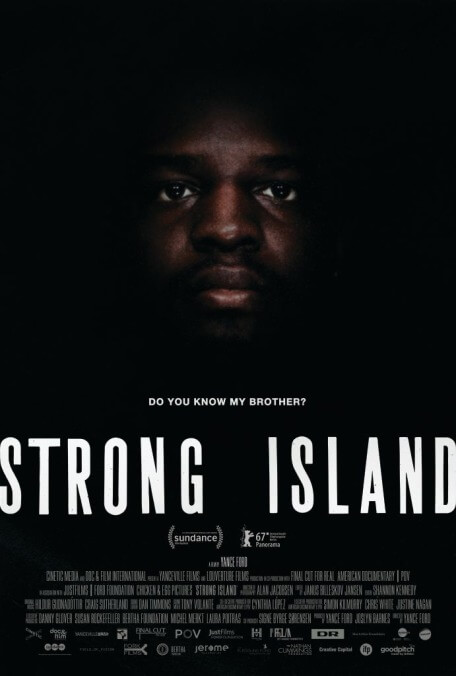Documentary Strong Island tells a painful yet painfully ubiquitous tale

Issue-oriented documentaries rarely pay much attention to aesthetics, so it’s invigorating, in an odd way, to see one that marries impressive form to so-so content. Yance Ford spent many years as the producer of PBS’ acclaimed doc series POV, and has likely seen as much nonfiction filmmaking as anyone alive. He’s knowledgeable enough to avoid cliché, cognizant enough of the rules to break them with purpose. Strong Island, his directorial debut, achieves a striking look via remarkably simple means. When Ford addresses the camera directly, for example, he shoots himself in slightly discomfiting closeup (i.e., too close), his face shrouded in darkness, speaking in a tone that’s at once measured and confrontational. The effect is stark, expressionistic, and powerful. It creates the sense that what’s being said is important.
Is it important? Yes and no. Strong Island is a very personal film for Ford, years in the making. It’s about his older brother, William, who was shot and killed in 1992, at the age of 24. The circumstances of William’s death are depressingly familiar: Angry that a mechanic who’d hit his car hadn’t yet made the promised repairs, William hurled some harsh words at the guy, followed him into the garage to pursue the argument, and took several bullets to the chest. Though William was unarmed, a grand jury decided that the shooter had reasonable cause to believe that he was in danger, and declined to indict. One of the two individuals involved in the incident was white, and one of them was black. Care to guess which was which?
Even to suggest that this might have been anything other than a blatant miscarriage of justice risks inflicting additional emotional damage on Ford and his family. Nonetheless, it must be said that Strong Island doesn’t present an ironclad case for William’s innocence, which is presented as a given. One might certainly err on the side of assuming that there was no valid reason for the mechanic to shoot him, given America’s long and horrific history of violence against people of color. The facts of this particular case, however, as outlined in the film, are inconclusive. William was advancing toward the shooter in what everyone present agrees was extreme anger (the actual shooting took place out of view, around a corner from witnesses), and he’d thrown a vacuum cleaner across the garage in a previous altercation. The original investigator—who comes across as kind and highly sympathetic to Ford’s cause—reviews the evidence, all these years later, and tells Ford that he thinks the grand jury’s decision not to indict was correct. Most reasonable viewers will likely disagree, and conclude (albeit based on limited information) that the case should at least have gone to trial. Still, there must be hundreds, even thousands of similar shootings in which there’s little to no doubt that someone got away with murder thanks to systemic and ingrained racism.
Of course, none of those hypothetical victims are Yance Ford’s brother. Strong Island’s fundamental weakness is the generic nature of its crime and subsequent lack of punishment; even were the death of William Ford Jr. as slam-dunk wrongful as Yance and his mother believe, this story probably wouldn’t have attracted the interest of any other documentary filmmaker, simply because there’s little about it that’s unusual or distinctive. Its ubiquity is its sad legacy. What’s valuable here, in addition to Ford’s visual mastery, is the wealth of context that he provides. The film’s title is a nickname for Long Island, where the Ford family lived, and nothing about the shooting itself hits nearly as hard as does Ford’s quietly livid recollection of how fully segregated neighborhoods came to exist side by side in middle-class New York suburbia, creating defined safe zones from which it was dangerous for black residents to stray. There’s ample talent and passionate conviction here to fuel a great documentary, and little doubt that Ford (who largely declines to focus on his own story—he identified as female at the time of William’s death, transitioning afterward) could make one. If Strong Island doesn’t quite qualify, well, it’s hard to fault him for choosing an initial subject so near and dear to his heart.